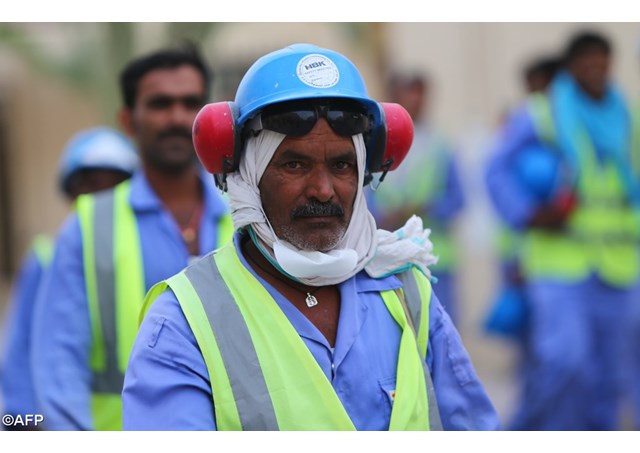
Amnesty says Qatar making little progress on labour reforms

A leading human rights group has criticized Qatar for failing to make adequate reforms for its migrant workforce a year after the wealthy Gulf nation announced plans to improve conditions for low-paid labourers building its massive infrastructure to host the 2022 World Cup. In a new briefing paper on Thursday, Amnesty International criticized Qatar for making no substantive changes on some labour issues, including the controversial ``kafala'' employee sponsorship system, and delivering only partial progress in other areas. The report by London-based rights group was released a day after three major World Cup sponsors _ Adidas, Coca-Cola and Visa _ publicly pressured soccer's world governing body FIFA to push Qatar to do more to improve labour conditions.
Qatar is being transformed by a building boom fueled by its vast oil and natural gas wealth. Like other energy-rich Gulf nations with relatively small local populations, it relies on well over a million migrant workers, many of them drawn from South Asian nations. Qatar responded to Amnesty's latest report by saying it disagrees with some of the claims and asserting it has made ``significant changes'' to improve working conditions.
In May 2014, officials outlined plans for legislation that could end in its current form of the kafala system that ties expatriate workers to a single employer. The draft law also would allow workers to obtain exit visas without having to secure their employers' consent. Rights groups say the existing policies leave workers open to exploitation and abuse. A year on, Amnesty says, the reforms aren't coming fast enough. On the contrary, Associated Press reported Amnesty's Gulf migrant rights researcher Mustafa Qadri as saying, the situation has probably gotten worse because there are more workers now.
Since winning the bid to host the World Cup in 2010, Qatar has come under intense pressure over its labour practices. FIFA president, Sepp Blatter pressed the emir of Qatar in March to do more to improve working conditions. FIFA welcomed the Amnesty report, and said it along with trade unions and rights groups will continue to push Qatar to enact reforms and abolish the kafala system.
Amnesty noted that no new laws have been passed to protect the rights of domestic workers, and that migrant workers are not allowed to form or join trade unions. Amnesty however cited improvements such as ending hefty fees workers often pay to secure jobs and stopping deceptive recruitment practices that can amount to human trafficking. It also acknowledged Qatar's progress on ensuring that workers get paid through a new system that requires companies to make direct deposits to workers, but noted the system is not fully operative. (Source: AP)
| All the contents on this site are copyrighted ©. |


